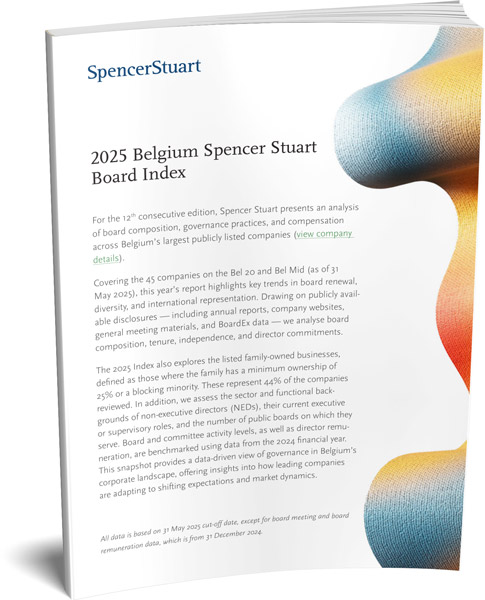
Welcome to the 12th edition of the Belgium Spencer Stuart Board Index, an annual report which analyses board governance practices in the 45 companies that comprise the Bel 20 and Bel Mid indices.
This year’s analysis provides a valuable perspective on the health of Belgian listed company boardrooms between 2024–2025, and highlights key trends in board renewal, diversity, and international representation. We also include analysis of board composition, tenure, independence, and director commitments.
Download our report to access our data-driven view of governance in Belgium’s corporate landscape, offering insights into how leading companies are adapting to shifting expectations and market dynamics.